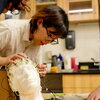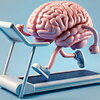The Lu Lab
The Lu Lab
Our Mission
The Lu Lab
Our Mission



he Illinois-Carle Joint Neural Engineering and Rehabilitation Laboratory (JNERL) is an interdisciplinary research facility focused on advancing neural engineering and rehabilitatio
Research in the Cellular Neuroscience Imaging Laboratory integrates bioengineering, neuroscience, and medicine to investigate biological systems from the molecular to behavioral scale.
The COmputation and NEurodynamics, also known as the CONE Lab, focuses on enhancing neural computation through mathematical theory, bioinformatics, and collaborative applications.
2355/57 Beckman Institute
405 North Mathews Avenue
Urbana, IL 61801
Email: nsp-admin@illinois.edu